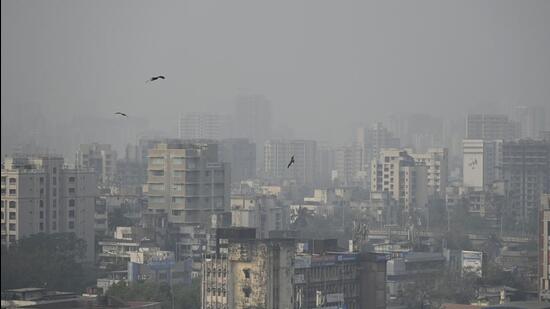Citizens need better air, masks can’t be the norm
Pulmonologists across the city have been reporting asthma-like symptoms in individuals who do not have asthma. Clearly, paraphrasing Paracelsus (1493–1541), “the dose makes the poison”.
Clean drinking water has possibly saved more lives than all the medications available for diarrhoea or gastroenteritis. This is universally acknowledged. Nobody would normalize frequent trips to a gastroenterologist, while ignoring the fact that one was consuming polluted water. Unfortunately, there seems to be a certain fatalistic acceptance to air quality, in comparison. This is despite the gravity and magnitude of the problem. The Lancet Commission on pollution and health reported that air pollution causes over 6.5 million deaths each year globally; more than 90% of pollution-related deaths occur in low- and middle-income nations like India.

Those living in Mumbai have experienced a dismal air quality over the past month. We have heard friends, family and acquaintances tell us about coughs that don’t seem to be getting better despite treatment, incessant sneezing, shortness of breath, tightness in the chest, and an overall feeling of being unwell. Pulmonologists across the city have been reporting asthma-like symptoms in individuals who do not have asthma. Clearly, paraphrasing Paracelsus (1493–1541), “the dose makes the poison”.
Let’s look at what Mumbaikars have been exposed to. The World Health Organization (WHO) has been recommending an AQI less than 50 and a PM 2.5 less than 12 µg/m3 as being satisfactory (the 2021 guidelines are more stringent). For the past month, the best 24-h AQI in Mumbai has been 92 and the worst has been 280, with the corresponding PM 2.5 levels being 50 and 137 µg/m3, respectively. The PM 2.5 corresponds to microscopic particles that reach the smallest airways of the lungs, and have the potential to cause serious health consequences.
Experts cite multiple reasons for the air pollution. Most of these allude to the quality of air currents and wind being exceptionally poor this year. Mumbai, being coastal, has conventionally benefited from air currents that have served as an exhaust fan to the city, saving us from what land-locked cities like Delhi go through. The complacency that has seeped in as a result of this nature-conferred advantage is worrisome. A walk through any part of the city makes one aware of how much dust and pollution we seem to be adding to the air, while expecting winds and air-currents to protect us. Based on the amount of constructions, renovations, excavations and repair that is sanctioned, I would guess there are mathematical models that could be used to regulate such work, and protect citizens from inhaling the by-products of such unfettered pollution. If workspaces in factories can have regulations to protect employees from unacceptable levels of pollutants, why can’t the same be applied to citizens?
As a pulmonologist, it is very disheartening to have to accept the fact that air quality is becoming a non-modifiable risk factor, and that many individuals will have to be medicated for a long time simply because of the quality of the air they breathe. It is difficult to advise individuals to stay active when the benefits of doing so could be offset by the harms of breathing bad air. “Wear a mask” is what is said very casually, not realizing how uncomfortable it makes things for those with respiratory symptoms. Masks need to be frequently changed and the high-efficiency masks tend to be expensive. As human beings, we must fight hard against normalizing masks, which cover our facial expressions and ability to emote. Instead, we must lobby for improving the quality of the air we breathe.
I do hope this winter has been an eye-opener, and will lead to serious conversations around air pollution. The answer simply must not be “blowing in the wind”.
Dr Lancelot Pinto is a Consultant Pulmonologist and Epidemiologist at P.D. Hinduja Hospital, Mumbai



